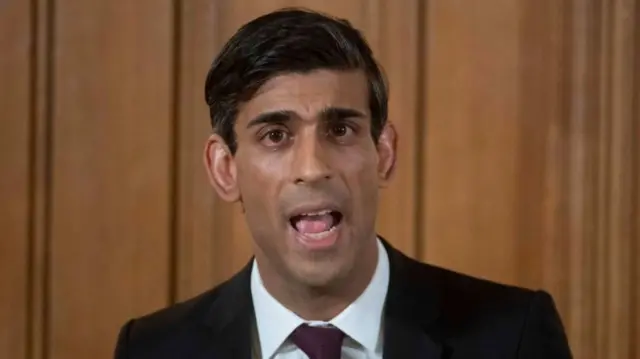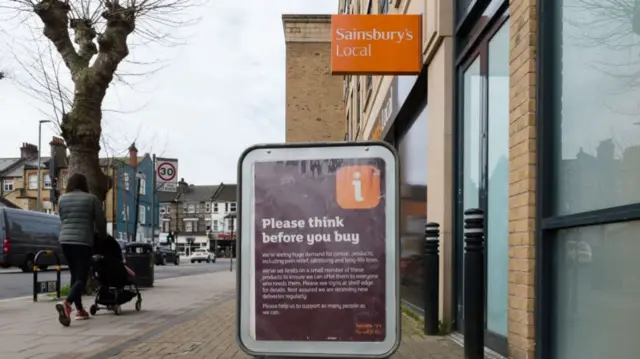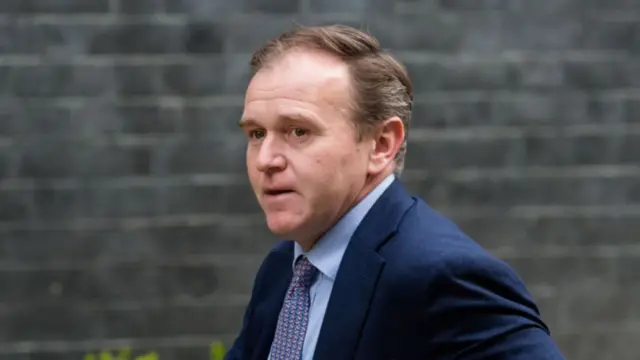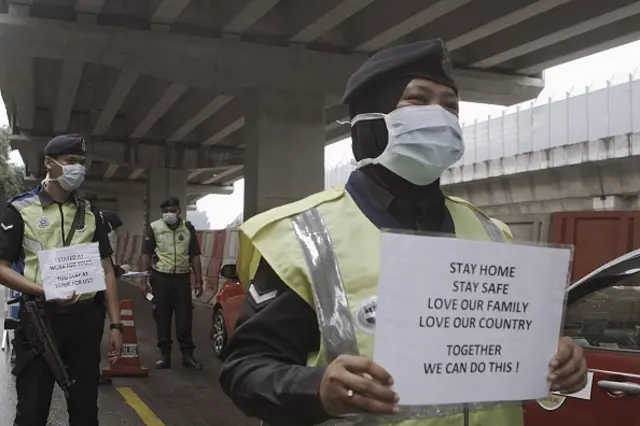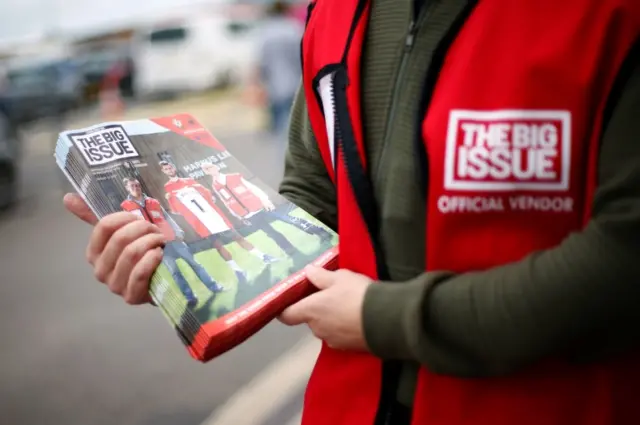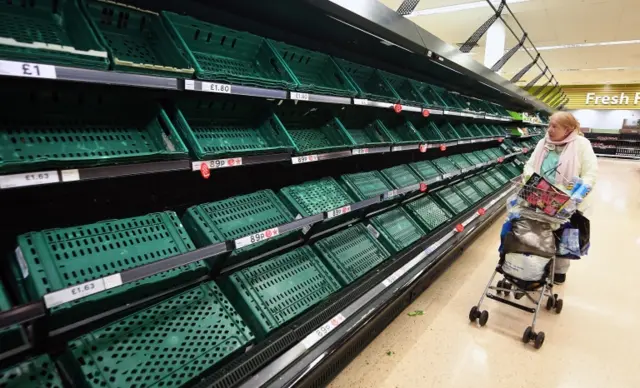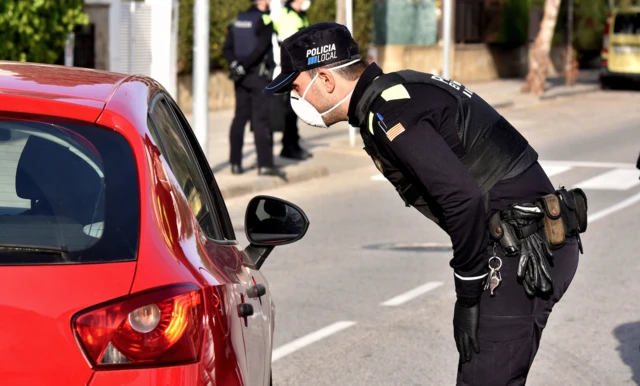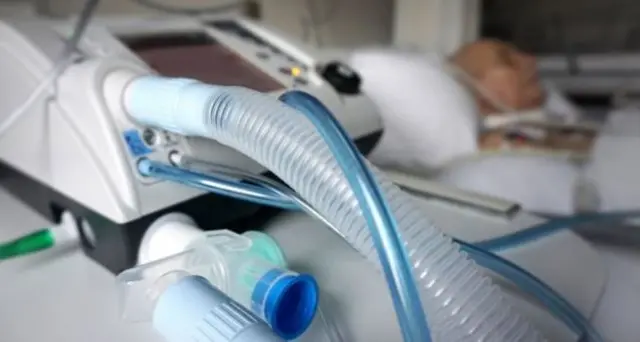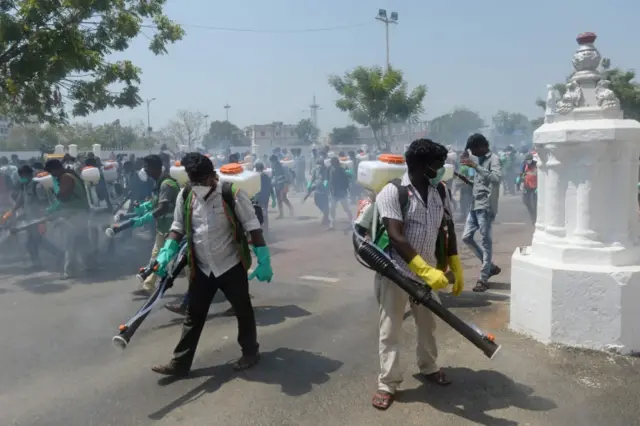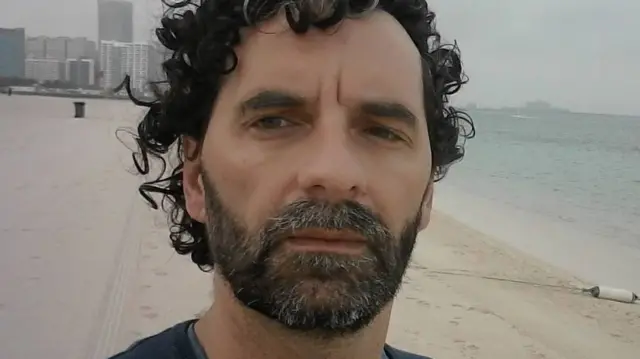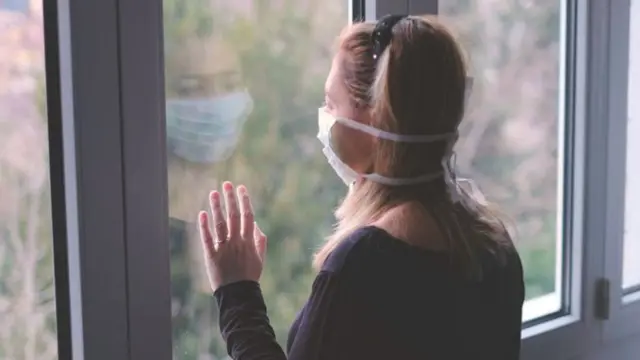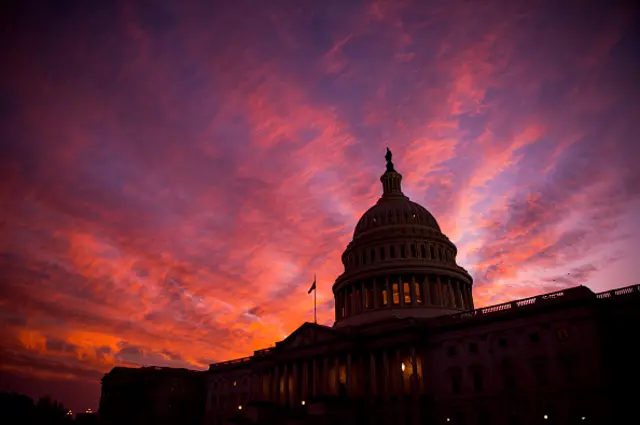What to expect from UK briefingpublished at 13:50 GMT 21 March 2020
 Nick Eardley
Nick Eardley
Political correspondent
We can expect to hear a lot about the food situation - what's going on in shops? We know there was a call earlier between ministers and the supermarkets.
We've all seen the scenes at shops and empty shelves - those are the sorts of issues likely to come up later. We may hear more about what measures might be taken by the supermarkets and the government to make sure those shelves are fully stocked in the coming weeks.
The issue of help for the self-employed is also being raised directly with government.
The truth is that the situation has moved so fast over the last 10 days - there have been three major interventions by the chancellor - and there are still questions.
Certainly there is pressure on that issue of exactly what is the support for the self-employed. There will be pressure on the government to perhaps come up with something else.
